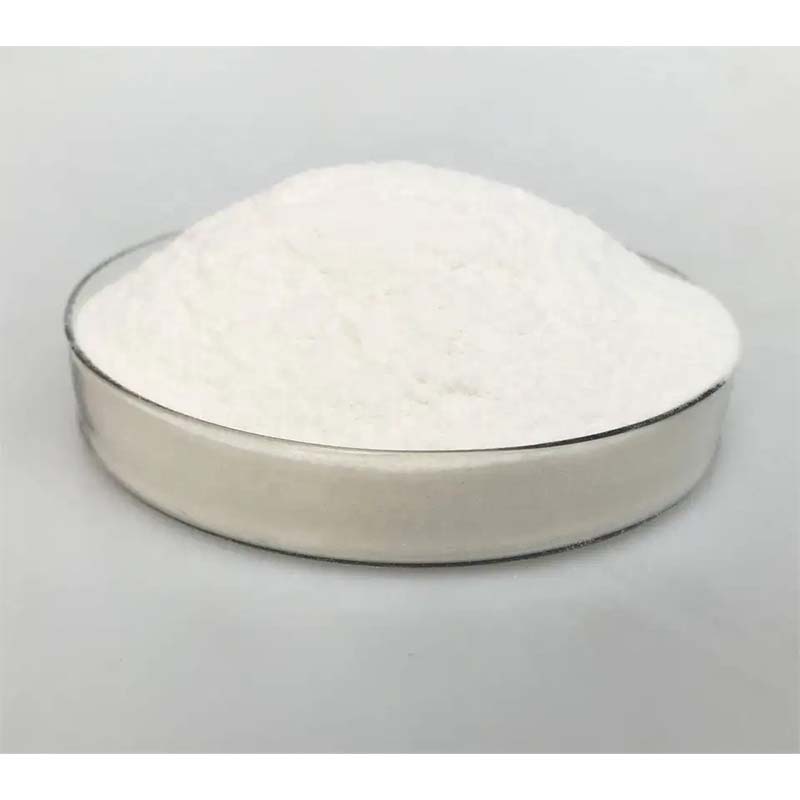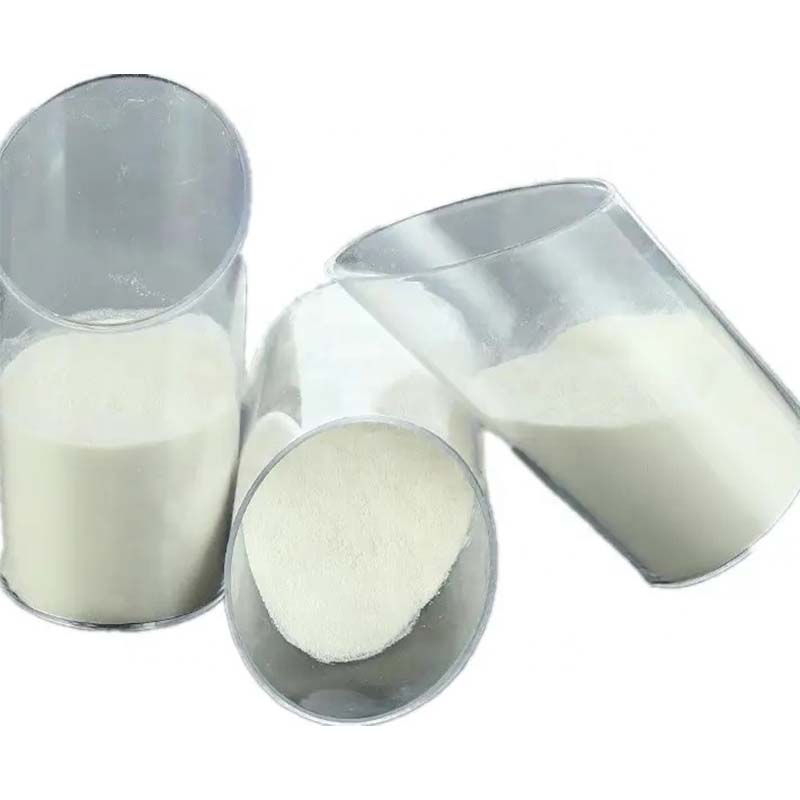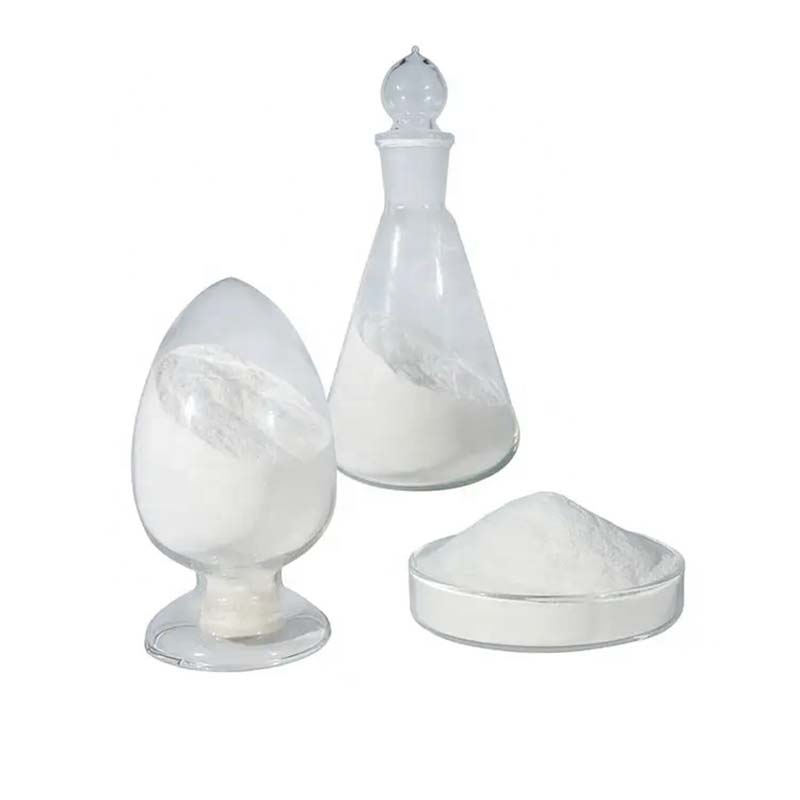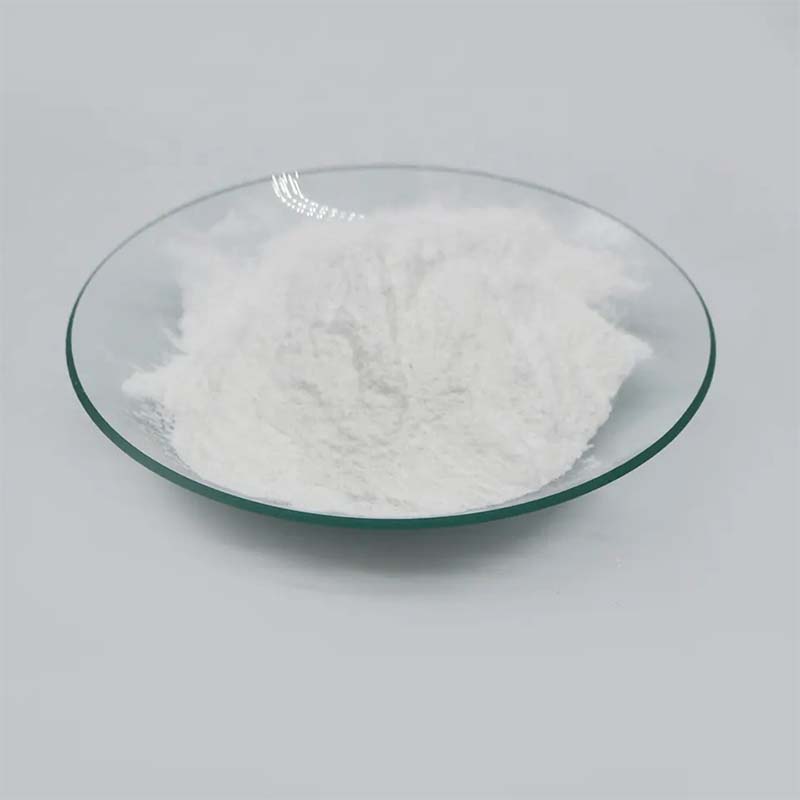9049 76 7 Hydroxypropyl Starch Ether: Premium Additive
Understanding Hydroxypropyl Starch Ether (HPS): Industry Trends and Market Dynamics
The global market for construction chemicals is witnessing a robust expansion, driven by urbanization, infrastructure development, and an increasing emphasis on sustainable building practices. Within this dynamic landscape, specialized additives like Hydroxypropyl Starch Ether, specifically identified by its CAS number 9049 76 7, are playing an increasingly critical role. This versatile polymer, often referred to as HPS, is derived from natural starch and chemically modified to impart superior performance characteristics to various building materials, particularly dry-mix mortars. The demand for enhanced workability, extended open time, improved anti-sagging properties, and superior water retention in modern construction applications has propelled HPS to the forefront of material science innovation. Market analysis indicates a steady growth trajectory for starch ethers, fueled by advancements in dry-mix mortar formulations, where they significantly contribute to the rheological properties and overall stability of gypsum-based products, tile adhesives, and self-leveling compounds. The drive towards high-performance and easy-to-apply construction solutions is a primary factor influencing manufacturers to integrate additives like 9049 76 7 into their product lines, ensuring higher quality and more efficient construction processes. Furthermore, the push for eco-friendly and sustainable materials often favors starch derivatives over purely synthetic alternatives, positioning hydroxypropyl starch ether as a preferred choice for environmentally conscious projects. As construction technologies evolve, the specific molecular structure and functional groups within 9049 76 7 allow for precise control over material behavior, a crucial advantage in sophisticated applications, thereby ensuring greater consistency and predictability in large-scale construction. This growing recognition of its benefits across diverse applications solidifies the market position of HPS as an indispensable additive in contemporary building practices, driving both innovation and efficiency.

The Advanced Manufacturing Process of Hydroxypropyl Starch Ether
The production of 9049 76 7, or hydroxypropyl starch ether, involves a sophisticated chemical synthesis process designed to yield a highly pure and functional product. The primary raw material is a native starch, typically sourced from corn, potato, or tapioca, which undergoes a meticulously controlled etherification reaction. This process involves reacting the starch with propylene oxide in the presence of a catalyst, leading to the substitution of hydroxyl groups on the anhydroglucose units of the starch molecule with hydroxypropyl groups. The degree of substitution (DS) is a critical parameter, precisely controlled during manufacturing to achieve desired performance characteristics such as viscosity, solubility, and film-forming properties. Post-reaction, the crude product undergoes rigorous purification steps, including neutralization, washing, and filtration, to remove impurities and by-products, ensuring a high-quality finished product. Subsequently, the purified slurry is carefully dewatered and dried, often using flash drying or spray drying techniques, to achieve a fine, free-flowing powder. The final stage involves milling and sieving to obtain a consistent particle size distribution, crucial for uniform dispersion in dry-mix formulations. Throughout this entire manufacturing chain, stringent quality control measures are implemented at every stage. Raw materials are inspected against predefined purity standards, and intermediate products are tested for reaction completeness and impurity levels. The final product, hydroxypropyl starch, is subjected to comprehensive quality assurance testing, including analyses for moisture content, pH, viscosity in solution, particle size, and appearance. Adherence to international standards such as ISO 9001 for quality management systems is paramount, ensuring that each batch of cas 9049 76 7 meets the highest industry benchmarks for consistency and performance, thereby maximizing its effective service life when integrated into construction materials. This meticulous approach guarantees the stability and predictable behavior of 9049 76 7 in diverse construction applications.

Technical Specifications and Performance Parameters of Good Quality HPS
Understanding the precise technical parameters of 9049 76 7 is crucial for formulators seeking to optimize their construction material compositions. Good quality Hydroxypropyl Starch Ether, like the product offered for gypsum joint powder, exhibits specific characteristics that directly translate into superior performance. Key parameters include appearance (typically a white to off-white powder), moisture content (usually below 8%), pH value (ranging from 6.0 to 8.0 in solution), and crucially, its viscosity and degree of substitution. The viscosity, measured in a defined aqueous solution (e.g., 2% solution at 20°C using a Brookfield viscometer), is a primary indicator of its thickening efficiency and rheology modification capabilities. Higher viscosity grades are generally used for applications requiring greater sag resistance, while lower viscosity grades might be preferred for self-leveling compounds. The degree of substitution (DS) reflects the average number of hydroxyl groups per anhydroglucose unit that have been substituted, influencing solubility, water retention, and thermal stability. Particle size distribution is another vital specification, impacting dispersion rate and homogeneity within dry-mix formulations. Manufacturers providing high-quality cas 9049 76 7 adhere to strict quality control, ensuring consistent parameters across batches, which is vital for reproducible performance in industrial applications. Below is a representative table outlining typical specifications for premium grade hydroxypropyl starch ether used in construction. These specifications ensure optimal performance in applications requiring improved workability, enhanced adhesion, and reduced shrinkage, thereby significantly extending the overall durability and efficiency of the final product and demonstrating the precise control manufacturers exert over the properties of 9049 76 7.
| Parameter | Unit | Value Range |
|---|---|---|
| Appearance | - | White to Off-White Powder |
| Moisture Content | % | ≤ 8.0 |
| pH Value (2% solution) | - | 6.0 - 8.0 |
| Viscosity (2% solution, Brookfield RV, 20°C) | mPa·s | Typically 50-1500 (grade dependent) |
| Fineness (Passing 80 Mesh) | % | ≥ 95 |
| Ash Content | % | ≤ 5.0 |

Applications and Advantages of Hydroxypropyl Starch Ether in Construction
The core strength of hydroxypropyl starch lies in its multifunctional capabilities within a wide array of construction applications, particularly in dry-mix formulations. For gypsum joint powder, a primary application for Good quality hps Hydroxypropyl Starch Ether, 9049 76 7 significantly enhances key performance indicators. It acts as an excellent thickener and rheology modifier, providing outstanding anti-sagging properties, which are critical for vertical and overhead applications, preventing material slumping. Furthermore, 9049 76 7 improves the workability of mortars and plasters, allowing for smoother application and easier spreading, thereby increasing application efficiency and reducing labor costs. Its unique molecular structure contributes to enhanced water retention, which is vital for proper cement hydration, leading to stronger, more durable final products and preventing premature drying of the mortar. This improved water retention also extends the open time, providing installers with more flexibility during application. Beyond gypsum joint compounds, hydroxypropyl starch ether finds extensive use in tile adhesives, where it enhances initial tack, slip resistance, and bond strength, ensuring secure and long-lasting tile installations. In self-leveling compounds, it aids in achieving a smooth, even surface, contributing to desirable flow characteristics without segregation. The adoption of products from reputable hydroxypropyl starch ether suppliers reflects a commitment to delivering superior performance in modern construction. Compared to other rheology modifiers, HPS often provides a more balanced profile of properties, including excellent stability under varying temperature conditions and compatibility with a broad range of other additives such like redispersible polymer powder, cellulose ethers, and defoamers. This synergistic effect allows formulators to create highly optimized and cost-effective solutions for diverse building challenges, making 9049 76 7 an indispensable component in high-performance construction materials.

Choosing the Right Supplier: Manufacturer Comparison and Custom Solutions
Navigating the market for 9049 76 7 requires a discerning approach, as the quality and consistency can vary significantly among suppliers. When selecting a manufacturer for hydroxypropyl starch ether, several critical factors must be considered beyond just price. Reputable hydroxypropyl starch ether suppliers differentiate themselves through consistent product quality, robust R&D capabilities, and comprehensive technical support. A comparative analysis often reveals that leading manufacturers invest heavily in advanced production technologies, ensuring precise control over the degree of substitution and molecular weight distribution, which directly impacts the performance characteristics like viscosity and water retention. Furthermore, their commitment to international quality standards such as ISO certifications (e.g., ISO 9001 for quality management, ISO 14001 for environmental management) provides an assurance of reliability and environmental responsibility for hydroxypropyl starch. While specific product comparisons depend on individual grades and applications, a general comparison might focus on consistency of batches, solubility, thickening efficiency, and compatibility with other additives commonly used in dry-mix mortars. Beyond standard offerings, the capacity for developing custom solutions is a hallmark of a truly valuable partner. For specific applications like specialized gypsum joint powders or high-performance tile adhesives, clients often require tailored viscosities, extended open times, or unique rheological profiles. A supplier capable of developing bespoke formulations of 9049 76 7 based on specific project requirements provides a significant competitive advantage. This collaborative approach involves a deep understanding of the client's application challenges, laboratory testing, and pilot-scale production to fine-tune the product. Engaging with suppliers who offer detailed technical data sheets, application guides, and responsive technical support ensures that you receive not only a product but a comprehensive solution that meets your exact needs, enhancing product performance and streamlining your manufacturing processes effectively.
| Factor | Tier 1 Supplier (e.g., Pezetech) | Standard Supplier |
|---|---|---|
| Product Consistency | Excellent (Batch-to-batch predictability) | Good to Variable |
| R&D and Customization | Strong (Tailored solutions, new product development) | Limited or None |
| Technical Support | Comprehensive (On-site assistance, formulation guidance) | Basic (Product data sheets only) |
| Certifications & Compliance | Multiple ISOs, REACH, etc. | Basic or Local only |
| Supply Chain Reliability | High (Robust logistics, global presence) | Moderate (Regional focus, potential disruptions) |
Ensuring Trust: FAQ, Delivery, and Quality Assurance for Hydroxypropyl Starch Ether
Building trust in the B2B chemical supply chain for products like 9049 76 7 is paramount. This extends beyond product specifications to encompass transparent operational practices, reliable logistics, and unwavering customer support. Ensuring the delivery of high-quality Hydroxypropyl Starch Ether, like Good quality hps Hydroxypropyl Starch Ether for gypsum joint powder, involves a commitment to rigorous quality assurance protocols that begin with raw material sourcing and extend through every stage of production, packaging, and delivery. Comprehensive internal and third-party testing ensures that each batch of cas 9049 76 7 consistently meets published specifications and adheres to international industry standards, minimizing batch-to-batch variation, which is critical for consistent performance in customer formulations. Our quality control department is equipped with advanced analytical instruments to perform a full suite of tests, including viscosity measurements, degree of substitution analysis, and impurity checks, confirming the integrity of 9049 76 7. A typical delivery cycle for bulk orders of hydroxypropyl starch ether ranges from 10 to 20 business days, depending on destination and current stock levels, with expedited options available for urgent requirements. We prioritize efficient supply chain management to minimize lead times and ensure on-time delivery. Furthermore, a clear warranty policy is in place, covering product quality for a specified period, typically 12-24 months from the date of manufacture, provided storage conditions are met. Our dedicated customer support team is readily available to address any technical queries, offer formulation advice, and assist with logistical arrangements, fostering long-term partnerships built on trust and mutual success.
Frequently Asked Questions (FAQ)
-
Q: What is the primary role of 9049 76 7 in gypsum joint powder?
A: Hydroxypropyl Starch Ether enhances workability, provides excellent anti-sagging properties for vertical applications, and significantly improves water retention, which extends the open time and ensures proper hydration of the gypsum, leading to a stronger and smoother finish. This makes 9049 76 7 indispensable for high-quality gypsum applications.
-
Q: Is Hydroxypropyl Starch Ether compatible with other additives?
A: Yes, HPS is highly compatible with a wide range of common additives used in dry-mix mortars, including cellulose ethers (like HPMC), redispersible polymer powders, defoamers, and superplasticizers. Its excellent compatibility allows formulators to create synergistic blends for optimized performance, ensuring that hydroxypropyl starch integrates seamlessly into complex formulations.
-
Q: What are the typical storage conditions for Hydroxypropyl Starch Ether?
A: To maintain its quality and shelf life, hydroxypropyl starch should be stored in a cool, dry place, away from direct sunlight and moisture. It is typically packed in multi-ply paper bags with an inner polyethylene liner to protect against humidity. Proper storage ensures the product remains free-flowing and retains its performance characteristics for the entire warranty period, critical for consistent application of sodium hydroxypropyl starch phosphate (if applicable) and similar products.
References and Further Reading
- F.P.W. van der Wal, T. van de Steeg, "Starch Ethers: Properties and Applications in Building Materials," Journal of Building Chemistry, 2018.
- K. Zhang, X. Li, "Rheological Behavior of Hydroxypropyl Starch Ether in Cementitious Systems," Construction and Building Materials Science, 2021.
- B. Liu, Y. Wang, "Impact of Hydroxypropyl Starch Ether on Water Retention and Workability of Gypsum-based Plasters," International Journal of Material Science, 2019.
- S. Das, P. Majumdar, "Advancements in Eco-Friendly Building Additives: A Review of Starch Derivatives," Green Materials Technology Review, 2022.
-
HPMC Gel: Premium Hypromellose Thickener for Diverse UsesNewsAug.30,2025
-
9049 76 7 Application GuideNewsAug.29,2025
-
Hydroxy Methyl Propyl Cellulose | HPMC Thickeners & BindersNewsAug.29,2025
-
Hydroxyethyl Cellulose Manufacturer: Superior Thickening & Gel SolutionsNewsAug.28,2025
-
Hydroxyethyl Methyl Cellulose Construction UseNewsAug.27,2025
-
Hydroxy Propyl Methyl Cellulose HPMC Food ThickenerNewsAug.27,2025








